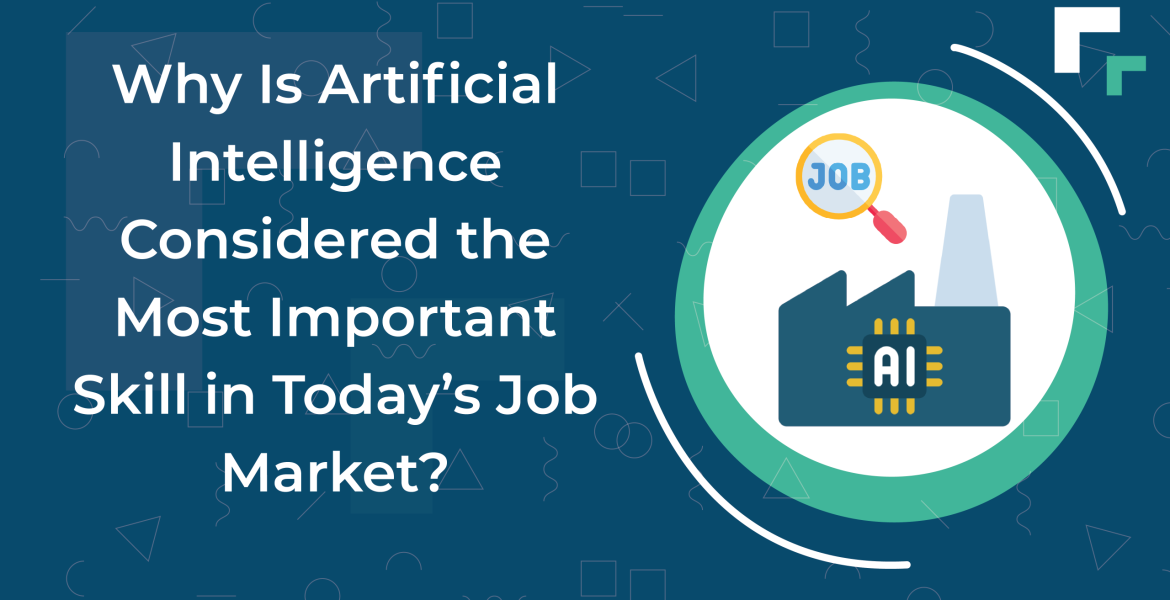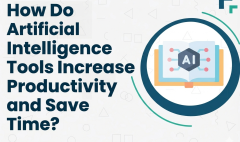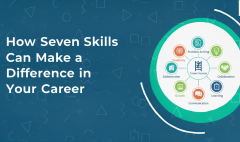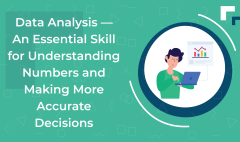Why Is Artificial Intelligence Considered the Most Important Skill in Today’s Job Market?

Why Is Artificial Intelligence Considered the Most Important Skill in Today’s Job Market?
Introduction
The job market today is experiencing an unprecedented transformation due to rapid technological advancements, with artificial intelligence (AI) at the forefront. Having knowledge of this technology is no longer just an additional advantage, it has become an essential requirement for success and continuity in many professions.
A decade ago, basic digital skills like using a computer or Office programs were enough to land a good job. But today, the competition demands that you’re able to work with tools and systems capable of learning, analyzing, and making decisions, meaning you must be familiar with AI and its applications.
Rapid Changes in the Workplace
The world is moving faster than ever. New technologies emerge daily; professions evolve or disappear; and companies are seeking ways to enhance efficiency and reduce costs. In this context, it’s clear that those with AI skills enjoy a huge competitive advantage.
For example, companies in sectors like marketing, healthcare, and education have begun integrating AI into their daily operations forcing professionals to learn how to interact with and leverage these technologies effectively.
The Rise of AI as a Core Skill
The World Economic Forum’s Future of Jobs Report 2025 pointed out that AI and data analytics are among the most in-demand skills for the coming years. This need isn’t limited to tech specialists CEOs, dentists, and designers now also need to understand how to use AI to improve their work.
What Is Artificial Intelligence and Why Does It Matter in the Labor Market?
A Simple Definition of AI
Artificial intelligence (AI) is the capability of systems or software to mimic human cognitive abilities such as comprehension, learning, prediction, and problem solving. It relies on advanced algorithms and encompasses domains like:
- Machine Learning: Training systems to learn from data.
- Natural Language Processing (NLP): Enabling machines to understand human language.
- Computer Vision: Analyzing images and video.
Its Applications Across Industries
- Marketing: Personalizing advertising campaigns based on consumer behavior.
- Healthcare: Assisting in early diagnosis of diseases.
- Education: Designing personalized curricula for students.
- Finance: Detecting fraud and analyzing risk.
- Manufacturing: Automating production lines and improving quality.
Growing Demand for AI-Related Skills
Recent stats suggest a sharp increase in job opportunities requiring AI expertise: from data engineers and algorithm developers to data analysts and process automation specialists. Even non technical roles now often demand AI knowledge, marketing managers need to understand analytics tools, and designers use AI to generate creative ideas quickly.
New Job Roles Created by AI
- AI Trainer: Teaches algorithms to interact more effectively.
- AI Ethics Specialist: Ensures algorithmic decisions are fair and unbiased.
- Chatbot Developer: Builds automated customer support experiences.
- Deep Learning Engineer: Develops complex solutions in domains like autonomous driving and image recognition.
How AI Is Transforming Existing Roles
Automating Routine Tasks
AI can handle repetitive tasks that once consumed hours of employee time, such as:
- Automatic processing of financial data instead of manual entry.
- Sorting emails and replying to frequent messages.
- Scheduling meetings and managing follow up tasks automatically.
This shift allows employees to focus on creative or strategic responsibilities instead of monotonous admin work.
Enhancing Human Productivity
AI acts as an intelligent assistant rather than a replacement for humans:
- In graphic design, AI tools can produce prototypes within minutes.
- In academic research, AI can analyze thousands of papers to extract key findings rapidly.
- In education, AI can deliver tailored assessments to each student to support their improvement.
AI’s Impact Across Different Sectors
- Technology: AI drives innovation in predicting user behaviors, optimizing server performance, and defending against cyber threats. Major companies like Google, Microsoft, and Amazon use AI extensively in search engines, cloud services, and virtual assistants.
- Healthcare: AI is revolutionizing medicine by analyzing X-rays, predicting diseases before symptoms appear, enabling precision treatments, and streamlining hospital management.
- Education: AI powers automatic grading systems, personalized learning platforms, and 24/7 chatbot support for students.
- Marketing: AI helps analyze consumer behavior for personalized campaigns, improves ad content, and automates email and promotional outreach.
Complementary Skills to Cultivate Alongside AI
- Data Analysis: Knowing how to collect, organize, and interpret data is essential as the foundation for applying AI models.
- Programming & Development: Understanding languages like Python or R opens doors for creating custom AI solutions. Even a basic familiarity with coding gives you an edge in the job market.
- Critical Thinking & Creativity: AI handles data; humans provide strategic oversight and innovation. Critical thinking helps interpret AI outputs, while creativity fuels unique solutions.
How to Start Learning AI
- Online Training Courses
Platforms like the KTH Center for Cognitive Curriculum offer courses tailored for AI, ranging from beginner to advanced levels. - Hands On Projects
Practical learning such as building a small project or contributing to open-source efforts is critical. - Networking with Professionals
Joining AI focused communities opens doors to knowledge exchange, job opportunities, and collaboration.
Challenges in Learning AI
- Technical Complexity
AI blends coding, math, and statistics, making it daunting for beginners. The key is to start with fundamentals and build gradually. - Rapid Technological Evolution
AI technologies advance quickly. What you learn today may need updating soon. Continuous learning and staying up to date are vital. - Lack of Arabic-Language Resources
While English language AI content is abundant, Arabic resources are still limited. Fortunately, regional interest is fueling rapid growth in Arabic AI materials.
Real-Life Examples of AI Impact
- Software Engineer (Egypt)
Learned AI through an online course and applied it to sales data analysis earning a job offer with a 40% salary increase. - Radiologist
Used AI to analyze X-rays, enabling early diagnoses and faster treatment enhancing patient trust and service quality. - Digital Marketer
Leveraged AI-powered analytics in their ad strategy, leading to a 65% increase in conversion rates.
The Future of Work in the Age of AI
- Jobs at Risk: Routine roles like data entry and traditional customer support may disappear.
- Roles Expected to Thrive: AI-savvy positions such as data analysts and AI solution developers are becoming more prominent.
Conclusion
AI is no longer a luxury or fringe skill, it’s a core tool for professional success in the digital era. Those who master it today are securing their place in the future job market, regardless of field. Investing in AI skills means investing in job security, higher income, and continuous development.
Frequently Asked Questions (FAQs)
- What are the most important programming languages for AI?
Python, R, and Java are among the most commonly used. - Can you learn AI without a programming background?
Yes but you’ll eventually need to learn some programming basics. - How long does it take to master AI skills?
Between 6 months to 2 years, depending on your time investment and desired level. - Which industries rely most heavily on AI today?
Healthcare, education, marketing, and finance are leading adopters. - Will AI reduce job opportunities or increase them?
AI changes how jobs function; it might eliminate some roles but also creates new, skill focused opportunities.





